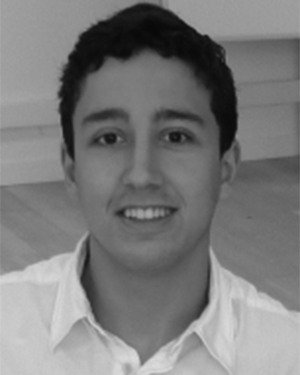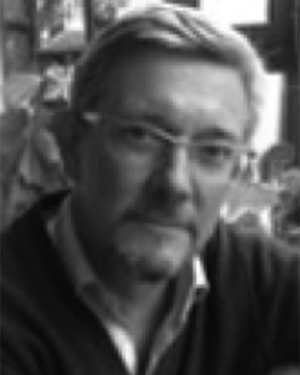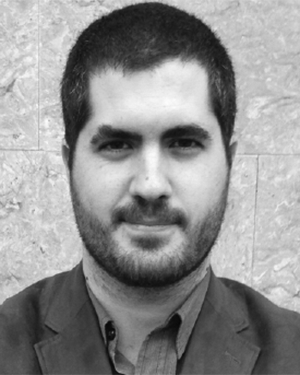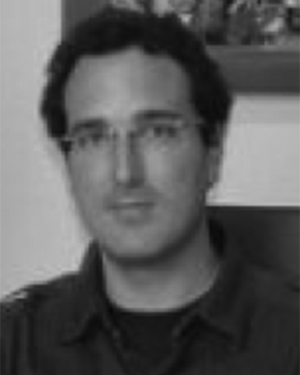Abstract:
Online laboratories have traditionally been split between virtual labs, with simulated components; and remote labs, with real components. The former tend to provide less ...Show MoreMetadata
Abstract:
Online laboratories have traditionally been split between virtual labs, with simulated components; and remote labs, with real components. The former tend to provide less realism but to be easily scalable and less expensive to maintain, while the latter are fully real but tend to require a higher maintenance effort and be more error-prone. This technical paper describes an architecture for hybrid labs merging the two approaches, in which virtual and real components interact with each other. The goal is to leverage the advantages of each type of lab. The architecture is fully web-based and multiplatform, which is in line with the industry and the remote laboratory community trends. Only recently has this become technically feasible for graphic-intensive laboratories due to previous limitations in browser-based graphical technologies. This architecture relies on the recent HTML5 and WebGL standards to overcome these limitations, and makes use of the Unity technology. To ensure that the proposed architecture is suitable, we set requirements based on the literature, we compare it with other approaches, and we examine its scope, strengths, and weaknesses. Additionally, we illustrate it with a concrete hybrid lab and we evaluate its benefits and potential through educational experiments.
Published in: IEEE Transactions on Learning Technologies ( Volume: 10, Issue: 3, 01 July-Sept. 2017)
Funding Agency:

Faculty of Engineering, Avda. Universidades, 24, Bilbao, Spain
DeustoTech-Deusto Foundation, Avda. Universidades, 24, Bilbao, Spain
Luis Rodríguez-Gil received the double degree in computer
engineering and industrial organization engineering, in 2013, and the MSc degree in information security, in 2014. He
is currently working toward the PhD degree in the DeustoTech Internet Group. Since 2009, he has been involved in the
WebLab-Deusto Research Group, collaborating in the development of the WebLab-Deusto RLMS. He has published several
peer-reviewed...Show More
Luis Rodríguez-Gil received the double degree in computer
engineering and industrial organization engineering, in 2013, and the MSc degree in information security, in 2014. He
is currently working toward the PhD degree in the DeustoTech Internet Group. Since 2009, he has been involved in the
WebLab-Deusto Research Group, collaborating in the development of the WebLab-Deusto RLMS. He has published several
peer-reviewed...View more

Faculty of Engineering, Avda. Universidades, 24, Bilbao, Spain
Javier García-Zubia (M’08-SM’11) received the PhD
degree in computer sciences from the University of Deusto. He is a full professor in the faculty of engineering,
University of Deusto, Spain. His research interests include remote laboratory design, implementation, and evaluation.
He is the leader of the WebLab-Deusto research group. He is a senior member of the IEEE.
Javier García-Zubia (M’08-SM’11) received the PhD
degree in computer sciences from the University of Deusto. He is a full professor in the faculty of engineering,
University of Deusto, Spain. His research interests include remote laboratory design, implementation, and evaluation.
He is the leader of the WebLab-Deusto research group. He is a senior member of the IEEE.View more

Faculty of Engineering, Avda. Universidades, 24, Bilbao, Spain
DeustoTech-Deusto Foundation, Avda. Universidades, 24, Bilbao, Spain
Pablo Orduña (M’05) received the degree in computer
engineering and the PhD degree from the University of Deusto, in 2007 and 2013, respectively. He is a full time
researcher and project manager in the MORElab Research Group, DeustoTech Internet. During the PhD degree, he was a
visiting researcher twice for 6 weeks each, in the MIT CECI, in 2011, and UNED DIEEC, in 2012. Since 2004, he has also
been involved in the We...Show More
Pablo Orduña (M’05) received the degree in computer
engineering and the PhD degree from the University of Deusto, in 2007 and 2013, respectively. He is a full time
researcher and project manager in the MORElab Research Group, DeustoTech Internet. During the PhD degree, he was a
visiting researcher twice for 6 weeks each, in the MIT CECI, in 2011, and UNED DIEEC, in 2012. Since 2004, he has also
been involved in the We...View more

Faculty of Engineering, Avda. Universidades, 24, Bilbao, Spain
DeustoTech-Deusto Foundation, Avda. Universidades, 24, Bilbao, Spain
Diego López-de-Ipiña received the PhD degree from the
University of Cambridge, in 2002. He is an associate professor and P.R. of MORElab Group and director of DeustoTech
Internet unit, and of the PhD program within the Faculty of Engineering, University of Deusto. He is responsible for
several modules in the BSc and MSc in computer engineering degrees, he is interested in pervasive computing, IoT,
semantic service mid...Show More
Diego López-de-Ipiña received the PhD degree from the
University of Cambridge, in 2002. He is an associate professor and P.R. of MORElab Group and director of DeustoTech
Internet unit, and of the PhD program within the Faculty of Engineering, University of Deusto. He is responsible for
several modules in the BSc and MSc in computer engineering degrees, he is interested in pervasive computing, IoT,
semantic service mid...View more

Faculty of Engineering, Avda. Universidades, 24, Bilbao, Spain
DeustoTech-Deusto Foundation, Avda. Universidades, 24, Bilbao, Spain
Luis Rodríguez-Gil received the double degree in computer
engineering and industrial organization engineering, in 2013, and the MSc degree in information security, in 2014. He
is currently working toward the PhD degree in the DeustoTech Internet Group. Since 2009, he has been involved in the
WebLab-Deusto Research Group, collaborating in the development of the WebLab-Deusto RLMS. He has published several
peer-reviewed publications and contributed to some Open Source projects.
Luis Rodríguez-Gil received the double degree in computer
engineering and industrial organization engineering, in 2013, and the MSc degree in information security, in 2014. He
is currently working toward the PhD degree in the DeustoTech Internet Group. Since 2009, he has been involved in the
WebLab-Deusto Research Group, collaborating in the development of the WebLab-Deusto RLMS. He has published several
peer-reviewed publications and contributed to some Open Source projects.View more

Faculty of Engineering, Avda. Universidades, 24, Bilbao, Spain
Javier García-Zubia (M’08-SM’11) received the PhD
degree in computer sciences from the University of Deusto. He is a full professor in the faculty of engineering,
University of Deusto, Spain. His research interests include remote laboratory design, implementation, and evaluation.
He is the leader of the WebLab-Deusto research group. He is a senior member of the IEEE.
Javier García-Zubia (M’08-SM’11) received the PhD
degree in computer sciences from the University of Deusto. He is a full professor in the faculty of engineering,
University of Deusto, Spain. His research interests include remote laboratory design, implementation, and evaluation.
He is the leader of the WebLab-Deusto research group. He is a senior member of the IEEE.View more

Faculty of Engineering, Avda. Universidades, 24, Bilbao, Spain
DeustoTech-Deusto Foundation, Avda. Universidades, 24, Bilbao, Spain
Pablo Orduña (M’05) received the degree in computer
engineering and the PhD degree from the University of Deusto, in 2007 and 2013, respectively. He is a full time
researcher and project manager in the MORElab Research Group, DeustoTech Internet. During the PhD degree, he was a
visiting researcher twice for 6 weeks each, in the MIT CECI, in 2011, and UNED DIEEC, in 2012. Since 2004, he has also
been involved in the WebLabDeusto Research Group, leading the design and development of WebLab-Deusto. He is a member
of the IEEE.
Pablo Orduña (M’05) received the degree in computer
engineering and the PhD degree from the University of Deusto, in 2007 and 2013, respectively. He is a full time
researcher and project manager in the MORElab Research Group, DeustoTech Internet. During the PhD degree, he was a
visiting researcher twice for 6 weeks each, in the MIT CECI, in 2011, and UNED DIEEC, in 2012. Since 2004, he has also
been involved in the WebLabDeusto Research Group, leading the design and development of WebLab-Deusto. He is a member
of the IEEE.View more

Faculty of Engineering, Avda. Universidades, 24, Bilbao, Spain
DeustoTech-Deusto Foundation, Avda. Universidades, 24, Bilbao, Spain
Diego López-de-Ipiña received the PhD degree from the
University of Cambridge, in 2002. He is an associate professor and P.R. of MORElab Group and director of DeustoTech
Internet unit, and of the PhD program within the Faculty of Engineering, University of Deusto. He is responsible for
several modules in the BSc and MSc in computer engineering degrees, he is interested in pervasive computing, IoT,
semantic service middleware, open linked data, and social data mining. He is taking and has taken part in several big
consortium-based research european (IES CITIES, MUGGES, SONOPA, CBDP, GO-LAB, LifeWear) and Spanish projects, and has
more than 70 publications in relevant international conferences, and journals, including more than 25 JCR-indexed
articles.
Diego López-de-Ipiña received the PhD degree from the
University of Cambridge, in 2002. He is an associate professor and P.R. of MORElab Group and director of DeustoTech
Internet unit, and of the PhD program within the Faculty of Engineering, University of Deusto. He is responsible for
several modules in the BSc and MSc in computer engineering degrees, he is interested in pervasive computing, IoT,
semantic service middleware, open linked data, and social data mining. He is taking and has taken part in several big
consortium-based research european (IES CITIES, MUGGES, SONOPA, CBDP, GO-LAB, LifeWear) and Spanish projects, and has
more than 70 publications in relevant international conferences, and journals, including more than 25 JCR-indexed
articles.View more

